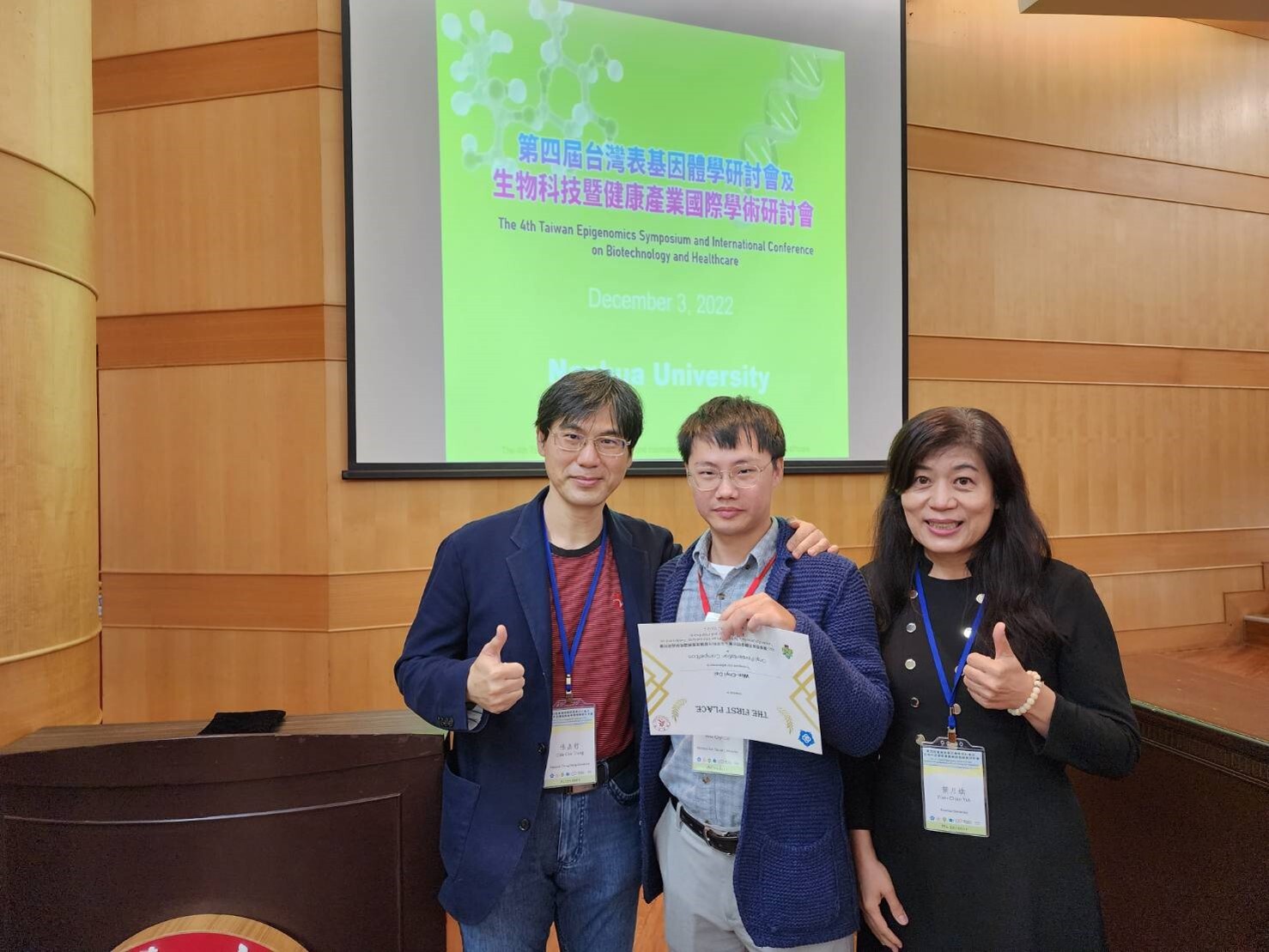【Congratulations】 DMBR student Wen-Chyi Dai won first place in the English Oral Presentation in the 4th Taiwan Epigenomics Symposium and International Conference on Biotechnology and Healthcare
Topic:Blockade of the STAT3-mediated prosurvival signaling pathway contributes to the anti-melanoma effect of Fucoxanthin, an algae-derived carotenoid
Author:Wen-Chyi Dai
Advisor:Tse-Min Lee, Chia-Che Chang
Wen-Chyi Dai1, Tse-Min Lee1,*, Chia-Che Chang2,*
1Department of Marine Biotechnology and Resources, National Sun Yat-sen University, Kaohsiung, Taiwan.
2Institute of Biomedical Sciences, National Chung Hsing University, Taichung, Taiwan. *: Corresponding author
Background and Aim:
Fucoxanthin is a common carotenoid in brown algae with prominent anti-cancer potential, but its anti-melanoma effect and the underlying mechanism remain unclear. Signal transducer and activator of transcription (STAT)-3 (STAT3) is a member of the STAT family. It is known that the continuously activated STAT3 is closely related to the development of various malignant tumors, such as melanoma, hence representing a potential cancer drug target. In this study we explored the inhibitory effect with the underlying mechanism of Fucoxanthin on human melanoma cell lines.
Results and Conclusion:
Our study indicated that Fucoxanthin is cytotoxic and proapoptotic to A375 and A2058 melanoma cells while showing limited cytotoxicity to normal human melanocytes. Additionally, we found that Fucoxanthin suppressed the constative and interleukin 6 (IL-6)-induced activation of STAT3, a well-known oncogenic driver for melanoma. Notably, overexpression of STAT3-C blocked the cytotoxic and proapoptotic effect of Fucoxanthin, confirming that STAT3 blockage is responsible for Fucoxanthin-induced anti-melanoma effect. Moreover, Fucoxanthin down-regulated BCL-xL, a well-known STAT3 transcriptional target gene, and BCL-xL overexpression impeded the anti-cancer effect of Fucoxanthin. Finally, we found that Fucoxanthin represses the activation of JAK2, a cognate upstream kinase of STAT3. Altogether, our study for the first time demonstrated that anti-human melanoma effect of Fucoxanthin with limited cytotoxic effect on normal human melanocytes, and further revealed that Fucoxanthin kills human melanoma cells by suppressing the JAK2/STAT3/BCL-xL prosurvival signaling pathway.
Conference Website:https://sites.google.com/view/taiwanepigenomics/call-for-papers



